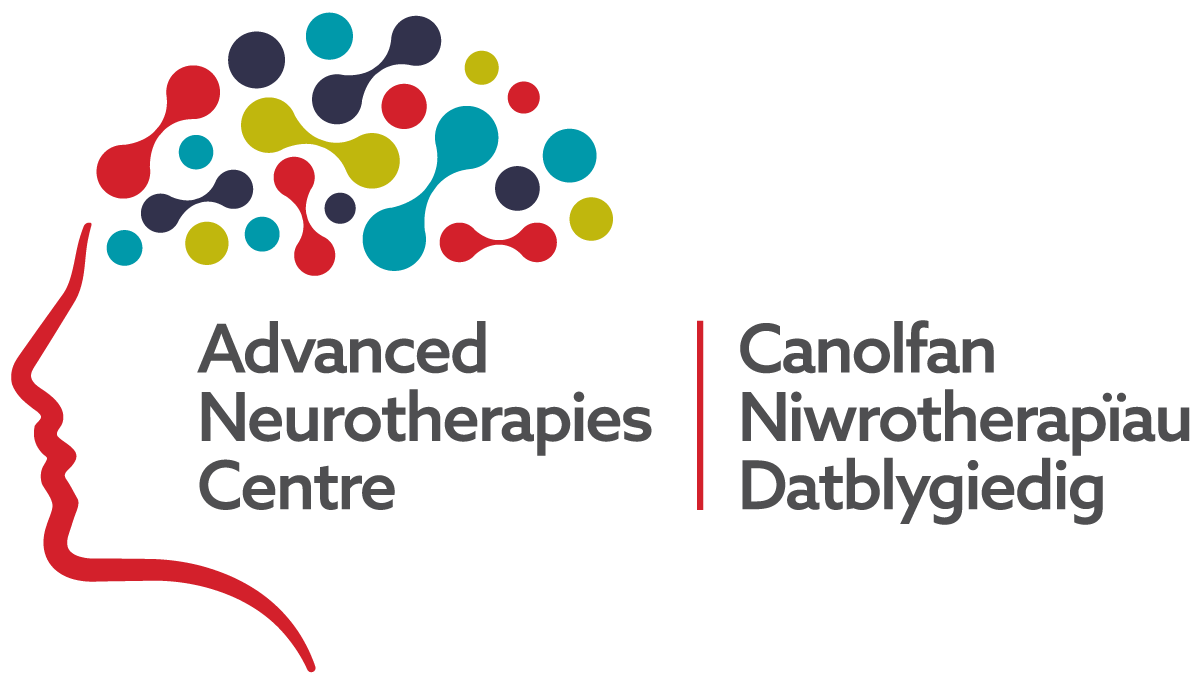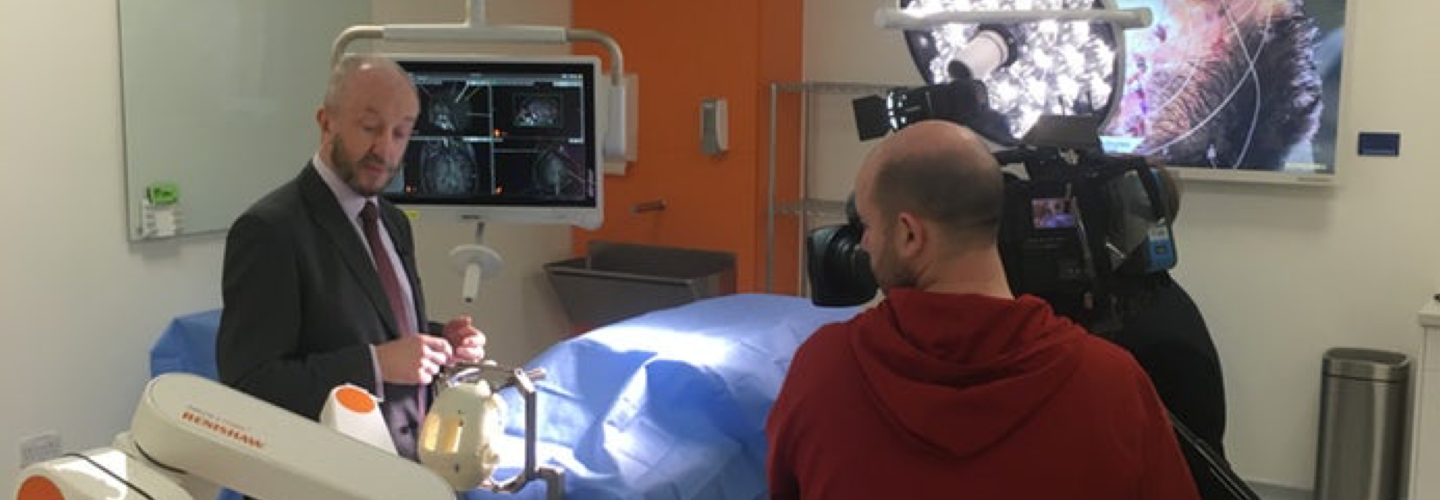First robotic ‘neuromate’ in Wales aids epilepsy surgery
The BRAIN Unit’s Professor of Functional Neurosurgery, Prof. William Gray, successfully performs the first robot-assisted epilepsy procedure in Wales.
Cardiff University is celebrating the landmark stereoelectroencephalography (SEEG) procedure, which was conducted at The University Hospital of Wales and is the first of its kind to be carried out with robotic assistance in Wales.
The ‘neuromate’ robot, named by creators Renishaw, a world-leading engineering and scientific technology company, assisted Prof. Gray during the surgery while he used intracerebral electrodes to measure electrical signals in the brain.
Patient Denise Casey, from Neath Port Talbot, was diagnosed with skewen epilepsy when she was 31, suffering up to six fits every day for the past 20 years.
With the robotic arm, it took Prof. Gray 55 minutes to accurately identify and operate on the epileptogenic zone in a procedure that would normally take four hours. Follow-up surgery a week later was performed in the hope of relieving Denise of her epileptic symptoms.
“The Renishaw Robot is a significant step forward for epilepsy surgery in Wales,” said Prof. Gray.
“It will enable us to investigate and treat even the most complex cases to achieve seizure freedom for our patients. In collaboration with the BRAIN Unit, it will also enable us to perform leading research for measuring brain signals and delivering therapies directly into the brain, across many neurological diseases.”
This landmark procedure coincided with BioWales, Cardiff’s annual conference which celebrates Wales’ position as a global pioneer in the life science sector. Andrea Richards, Directorate Manager for Neurosciences at Cardiff and Vale University Health Board, said:
“We are pleased that this collaboration has enabled a number of improvements to be made to patient care.
“Neurosurgical patients will now spend less time in the operating theatre, have a reduced risk of infection and benefit from improved surgical outcomes.”
Dr Abed Hammoud, CEO of Renishaw Mayfield SA in Switzerland, added:
“We are delighted to hear that our expertise in technology and engineering contributed to a positive result at the University Hospital of Wales, and look forward to working closely with the neuroscience department to deliver best possible outcomes for patients in Wales.”
Denise has not suffered any fits since her operations in March, and even appeared alongside Prof. Gray on BBC Wales television to discuss her experience. Watch the interview here: http://www.bbc.co.uk/news/uk-wales-39513139




